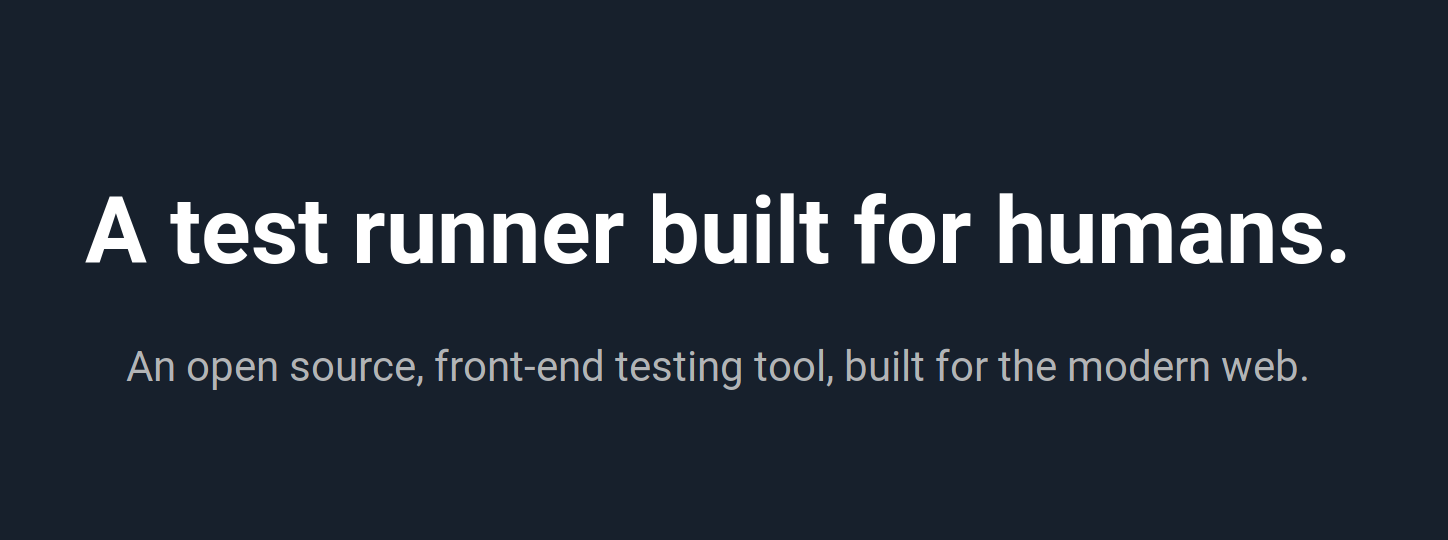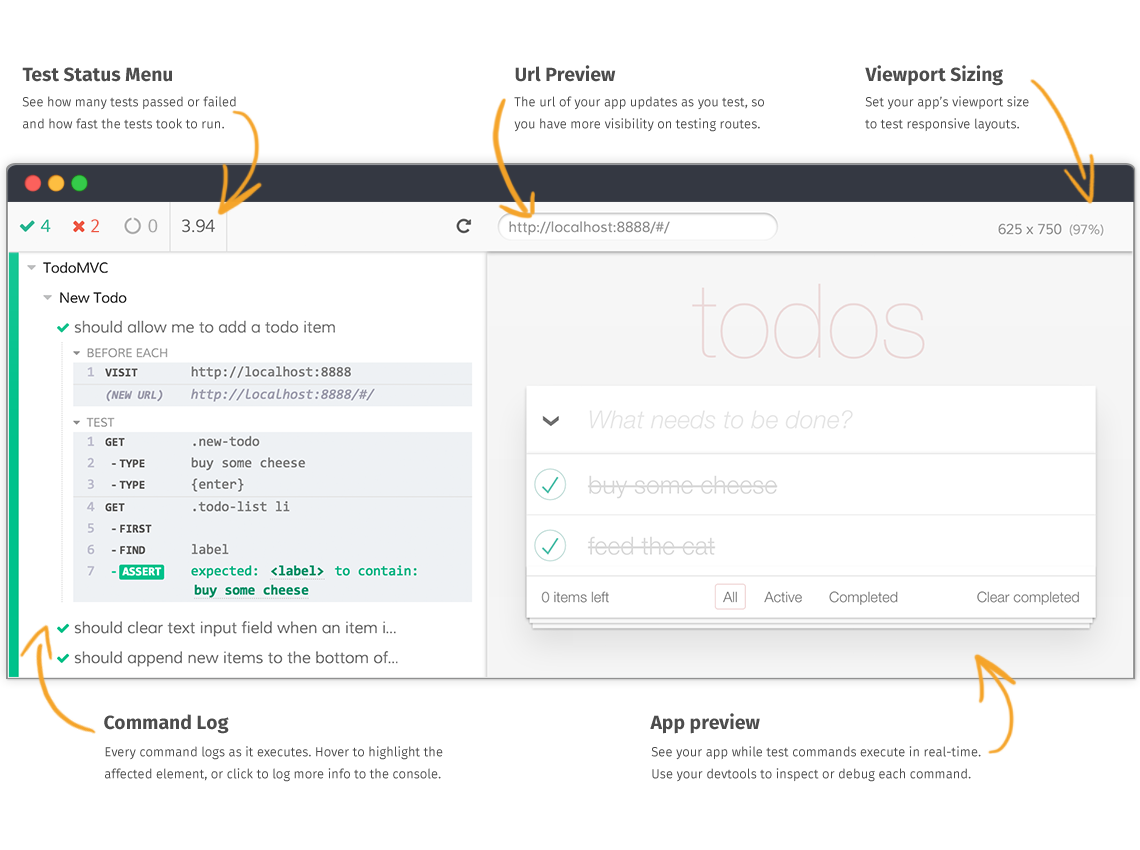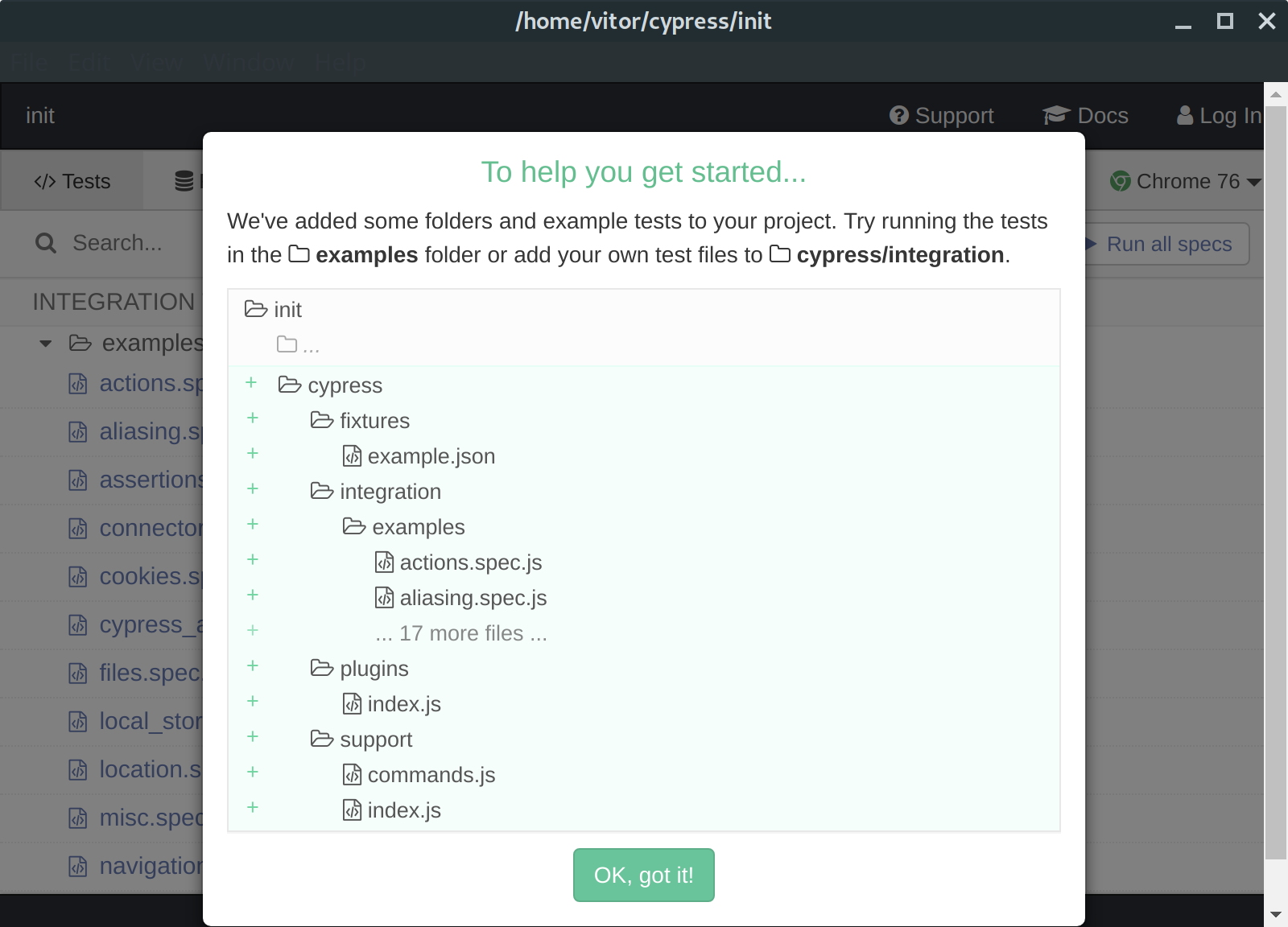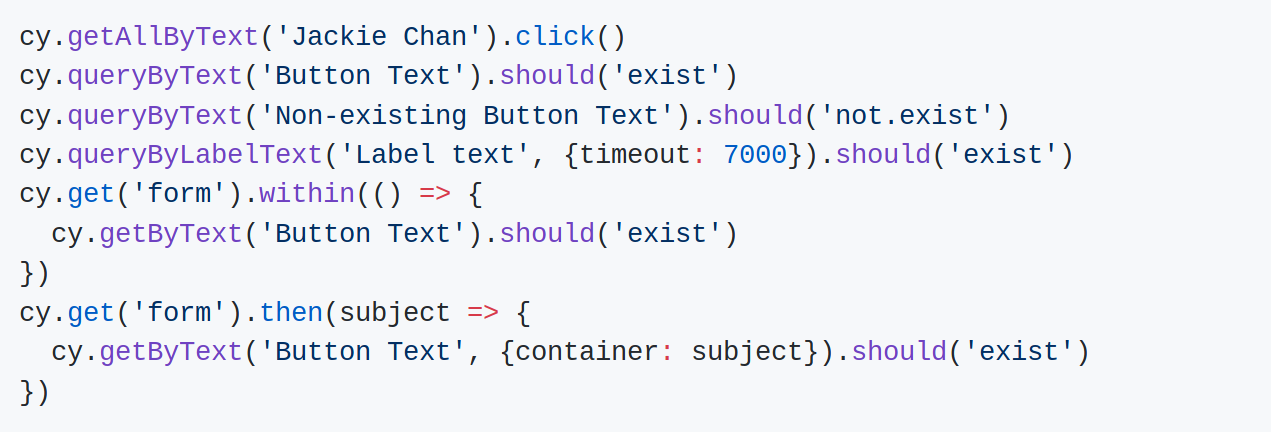Cypress
to build your E2E test suite
Using
Vitor Fernandes
github.com/vmlf01
Fullstack Developer at
KWAN + Toptal
Angular PT organizer
Angular/React
Node.js
.Net



Overview
Overview
Cypress is a next generation front-end testing tool
that can test anything that runs in a browser.

Overview
Open-source MIT License
14K+ GitHub Stars
615K+ npm weekly downloads


cypress
CLI Test Runner
Desktop App
Dashboard SaaS
Overview
The Cypress Test Runner runs in the context of the browser and uses the browser's automation APIs.
Cypress currently supports Electron or Chrome.
Under the hood, Cypress uses Mocha + Chai + Sinon,
so its syntax is very familar for most JS developers.
The Test Runner

Features
- Time Travel
- Automatic Waiting and Assertion Retry
- Spies, Stubs and Clocks
- Fixture management
- Network Traffic Control
- Parallel Execution
- Screenshots and Videos
Using Cypress
Adding cypress
Cypress file structure

Running cypress
Selectors
Cypress uses jQuery-like selectors
cy.get(".action-form")
.find('[type="text"]')
.type("HALFOFF");
Assertions
Cypress uses Chai assertions. Common assertions include `exist`, `equal`, `deep.equal`,`have.length`, `contain`, `match`, `have.attr`, `have.class`
cy.get(".action-form")
.submit()
.next()
.should("contain", "Your form has been submitted!");
Retriability
Cypress wraps all DOM queries with retry-and-timeout logic that better suits how real web apps work.
cy.get(".action-form")
.submit()
.next()
.should("contain", "Your form has been submitted!");
Execution queue
Cypress commands don’t do anything at the moment they are invoked, but rather enqueue themselves to be run later.
cy.get(".action-form")
.submit();
cy.get(".action-form")
.next()
.should("contain", "Your form has been submitted!");
Network requests
Cypress allows you to make network requests or stub network responses.
// make a POST request to server
cy.request(
"POST",
"http://localhost:8888/users/admin",
{ name: "Jane" }
);
cy.server(); // enable response stubbing
cy.route({
method: "GET", // Route all GET requests
url: "/users/*", // that have a URL that matches '/users/*'
response: [] // and force the response to be: []
});
Integrating with Angular
- Run Angular and Cypress in parallel
- separate command lines
- npm concurrently
- npm npm-run-all
- Nrwl Nx
- already includes integration to run cypress
(https://github.com/mysticatea/npm-run-all)
(https://github.com/kimmobrunfeldt/concurrently)
Cypress best friend
https://github.com/testing-library/cypress-testing-library


My Story
How I got started with Cypress

https://www.classdojo.com/
How I got started with Cypress
Starting Context:
- Existing system already built and in production
- We needed to refactor some application areas
- The existing end-to-end tests were hard to write and not popular with dev teams
- Mostly manual verification of changes
How I got started with Cypress
Part of ClassDojo DevEx team effort to:
- make code base more uniform around current code patterns
- make on-boarding of new developers to code base easier
- increase build and deployment pipeline automation
- make it easier to write end-to-end tests
- increase test confidence
How I got started with Cypress
Cypress seemed to be the quickest and easiest way to provide a reliable safety net to enable refactoring, without being too tied to internal implementation and structure.
First steps
- We had a few mob sessions with 6 people
- 2 of which were already familiar with Cypress
- within 2 weeks, all were confortable writting tests with Cypress
Biggest initial issues
- Occasional false positive test failures
- Test running time
- Iframe file upload testing
- Racing conditions reloading data
How we fixed them
- Statistical analysis of failures
- most of failures were related to assertions timing
- debounced user interactions
- variable network response
- use network requests as stop points
- Use Docker containers and docker-compose to run multiple instances of testing infrastructure in parallel
How it's been working so far
- In the last 6 months, we've been doing heavy refactoring, with very little production disruption
- We've expanded Cypress tests into 4 different web projects
- Most flaky tests are not due to Cypress itself
- Running 2 instances in parallel cut running time from 15 to 8 minutes (~140 test cases)

-
https://docs.cypress.io/
-
https://slides.com/bahmutov/flawless-tests#/
-
https://testdriven.io/blog/testing-angular-with-cypress-and-docker/
-
https://www.youtube.com/channel/UC-EOsTo2l2x39e4JmSaWNRQ
-
https://nx.dev/angular/guides/modernize-cypress
-
https://www.cypress.io/blog/2019/01/17/using-nrwl-nx-to-add-cypress-to-your-angular-development-workflow/